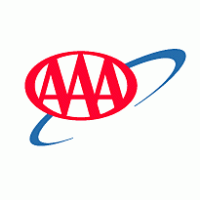The razor company, Gillette, recently released an ad that made headlines. It shows men standing up to one another, making a change instead of making the excuse that “boys will be boys.” The ad addresses the “Me Too Movement”, sexual harassment, bullying, and violence. While the message carries many positive implications, reaction has been mixed
In an opinion article from FOX News, the ad was deemed as insulting to men. It discussed how the commercial calls upon men to “be better” and be a better example for young boys. The woman who wrote the piece, Karol Markowicz, said that she is “tired of the boy-bashing that has become all too common on our screens and in our world.” Markowicz is not the only person to feel this way. The video of the ad on YouTube received 703,000 likes and a whopping 1.2 million dislikes.
Others felt that the ad is what the world needs right now — something to spark a complex conversation and debate across the country. Some men found the video very insulting, while others found the message endearing and empowering. An opinion article in The Hill compared it to Dove’s “Campaign for Real Beauty” which promotes positive self-image among women.
The discussion generated by the ad has been world-wide and riveting. Gillette’s North American brand director, Pankaj Bhalla, said that they expected this. Bhalla also said that “…a discussion is necessary. If we don’t discuss and don’t talk about it, I don’t think real change will happen.” One thing is certain, there has been a lot of discussion about Gillette as a company in this debate. Some people have applauded their meaningful twist on their slogan “The Best a Man Can Get” — encouraging men to not only use the best products, but to also be their best and do their best. Other Gillette users are flushing their razors down the toilet because they are so insulted by the commercial.
While risky, this socially motivated ad is a brilliant PR move by Gillette. The company used a call to action in their ad that places them squarely into the world-wide conversation about toxic masculinity, and uses the power of their brand equity to challenge men to “be better.” It will be interesting to watch the fallout in the days and weeks to come, and to see what else Gillette may have up its sleeve – especially with the highly anticipated advertising surrounding the Super Bowl.
For more information on what Kovak-Likly can do for your organization, please call (203) 762-8833.


 e Tipsy Tow service has been available in some communities for more than 34 years, several locations have stopped offering it. AAA says that the emergence of services such as Uber and Lyft has eliminated the need for Tipsy Tow since party-goers can now get to and from locations safely and at a reasonable price. As these services continue to grow, AAA may have to explore other ways to use their services to help communities, but for right now Tipsy Tow is a great way to get home safely on major holidays. To learn more about Tipsy Tow and if it is in your area you can visit the AAA website:
e Tipsy Tow service has been available in some communities for more than 34 years, several locations have stopped offering it. AAA says that the emergence of services such as Uber and Lyft has eliminated the need for Tipsy Tow since party-goers can now get to and from locations safely and at a reasonable price. As these services continue to grow, AAA may have to explore other ways to use their services to help communities, but for right now Tipsy Tow is a great way to get home safely on major holidays. To learn more about Tipsy Tow and if it is in your area you can visit the AAA website: